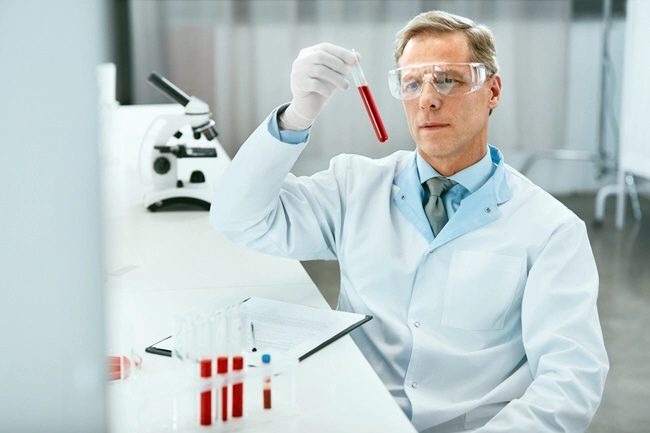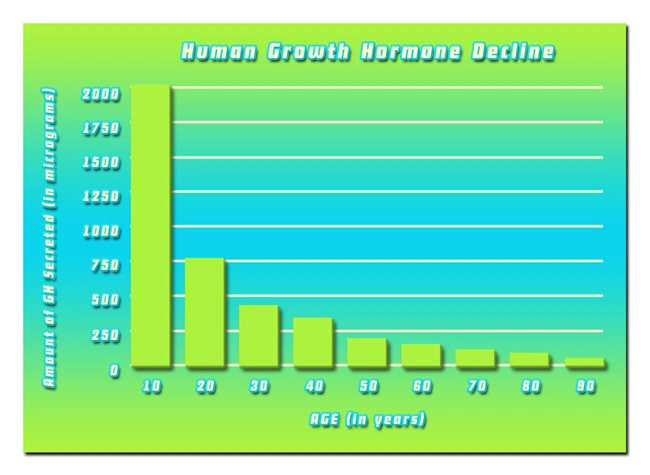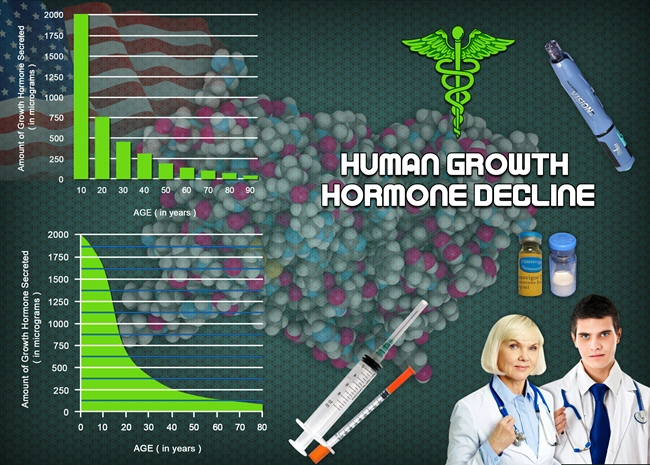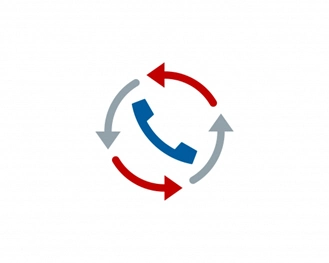
Video Link: https://vimeo.com/571944048
Video Download: Click Here To Download Video
Video Stream: Click Here To Stream Video
 One of the key aspects of good health is Hormone Balance. The various hormones in the human body interact with one another in a grand interplay that facilitates human health and function.
One of the key aspects of good health is Hormone Balance. The various hormones in the human body interact with one another in a grand interplay that facilitates human health and function.
Hormone Imbalance is one of the primary causes of degrading health and wellness. In fact, many of the health issues that we have come to associate with the aging process are actually the result of changing Hormone Levels.
Many hormones, such as Human Growth Hormone and Testosterone, become more precious as we get older. There's a reason that these hormones are associated with health and virility.
The Endocrine System is the umbrella term for all aspects of the human system related to hormone function. Organs and tissues throughout the body both produce hormones and have receptors for these chemical signals.
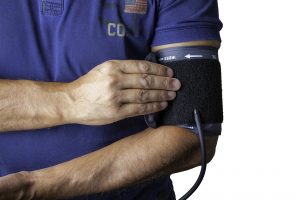 The Endocrine System is largely responsible for making sure that different organs and systems work together. The following is just a short list of responsibilities associated with your hormones:
The Endocrine System is largely responsible for making sure that different organs and systems work together. The following is just a short list of responsibilities associated with your hormones:
- Basal Metabolic Rate
- Temperature Regulation
- Stress and Mood
- Development and Growth
- Fertility and Sexual Function
- Blood Pressure/Pulse
- Circadian Rhythm/Sleep Patterns
- Hunger/Metabolism
As you can see, your Endocrine System has a ton of responsibilities, and these responsibilities can interact with one another in ways that you might not expect. Any particular hormone that falls out of balance, such as Testosterone, Insulin, or Thyroxine, can have far-reaching impacts that drain your vitality and increase your risk of health problems.
 Sometimes the problem is too much: Obese men tend to produce too much Estrogen, for example. Other times, the problem is insufficient hormone production, such as Testosterone Deficiency which leads to low sex drive, erectile dysfunction, and more. Our hormone levels are constantly in flux—temporary abnormalities are little cause for concern. Chronic issues with Hormone Imbalance are a major cause for concern, however.
Sometimes the problem is too much: Obese men tend to produce too much Estrogen, for example. Other times, the problem is insufficient hormone production, such as Testosterone Deficiency which leads to low sex drive, erectile dysfunction, and more. Our hormone levels are constantly in flux—temporary abnormalities are little cause for concern. Chronic issues with Hormone Imbalance are a major cause for concern, however.
What Are Types of Hormonal Imbalance in Men?
While there are a wide variety of conditions that are associated with Hormone Imbalance, the following is a selection of those that you should be aware of:
- Low-T – Testosterone is the cornerstone of masculinity. Testosterone Deficiency leads to sexual dysfunction and also contributes to weight gain, loss of strength, fatigue, and more
- HGH Deficiency – Human Growth Hormone helps control growth, metabolism, and healing
- Hypothyroidism – Under-performance of the Thyroid Gland associated with poor temperature regulation, mood dysregulation, and obesity
- Hyperthyroidism – Over-active Thyroid Gland associated with overly high metabolism
- Adrenal Fatigue – Chronic Stress depletes reserves of Adrenal Hormones, leading to exhaustion and lack of energy
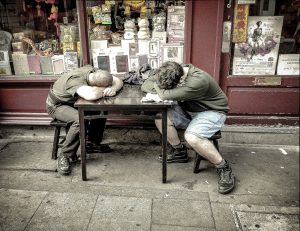 Could You Be Struggling With Hormone Imbalance?
Could You Be Struggling With Hormone Imbalance?
As you can see, many hormonal issues share some of the same symptoms. This can make it difficult to properly diagnose the source of Hormone Imbalance without adequate testing and blood work. Hormone Specialists around the United States have extensive training in the identification and treatment of endocrine disruption.
Hormonal issues tend to be characterized by a wide range of symptoms that impact the whole of the individual. This is because Hormones have widespread downstream impacts which modulate various different organs and other systems.
If you've experienced a collection of symptoms such as those below, it may be the time to reach out to an Endocrinologist or Hormone Clinic in your area:
- Long bouts of fatigue without an identifiable cause
- Frequent trips to the bathroom
- High levels of thirst
- Depression, Anxiety, Irritability
- Unhealthy changes in blood pressure/heart rate
- Thermoregulation issues
- Migraines/headaches
- Trouble sleeping through the night
- Cold sweats and hot flashes
- Inability to lose weight
- Weight loss sudden and without cause
 What Causes Hormonal Imbalance?
What Causes Hormonal Imbalance?
The Endocrine System is simultaneously robust and sensitive to interference. There are a wide variety of issues that can affect your Hormone Levels.
- Chronic stress leads to the overproduction of Cortisol at the expense of other hormones and can eventually lead to Chronic Fatigue Syndrome
- Obesity and Overeating lead to the overproduction of Estrogen and the suppression of Testosterone while also contributing to Insulin Resistance and Type-2 Diabetes
- Anorexia depletes the body of important nutrients, which have widespread impacts on hormone production
- Drug Use and Abuse can alter your body's ability to produce healthy levels of certain hormones such as Testosterone
- Environmental Exposure to Endocrine Disrupting Chemicals
- Physical Trauma can directly impact your hormone production at the source
- Tumors, cancerous or benign, can lead to the over-production or suppression of hormone production
- Aging has a natural impact on levels of various hormones, including Human Growth Hormone and Testosterone
Methods to Preserve and Restore Hormone Balance
 While some forms of Hormone Imbalance will inevitably require medical intervention, there's a lot that you can do to recalibrate and reinforce your hormone levels. Here are some options to consider:
While some forms of Hormone Imbalance will inevitably require medical intervention, there's a lot that you can do to recalibrate and reinforce your hormone levels. Here are some options to consider:
- Work on your diet - What goes in your body has huge consequences for your health. Simple sugars and carbohydrates can have a devastating impact on HGH Levels and Insulin Sensitivity. Complex carbohydrates protect your body from insulin spikes. Also, make sure you are getting adequate proteins, healthy fats, and essential nutrients.
- Make an Effort To Sleep Deeply and Well – Many hormones, such as Human Growth Hormone, are produced primarily at night. Poor sleeping habits also increase levels of the stress hormone Cortisol.
- Engage in regular exercise – Your body is designed for physical activity. A sedentary lifestyle is one of the biggest factors of Hormone Imbalance. Exercise promotes the production of Testosterone and relieves stress. Cardiovascular exercise is for the heart, and weight training is great for hormone balance and longevity. Consider combining both cardiovascular and anaerobic workouts with High-Intensity Interval Training.
- Control Stress – Make sure you give your body and mind time to unwind. Consider meditation, or just go for a walk or spend some time with friends in a relaxing environment.
- Reach Out to a Professional – You Don't have to go it alone. There's a Licensed and Board-Certified Hormone Clinic near you that can provide guidance and assistance to help you restore Hormone Balance!
Contact Us Today For A Free Consultation
Dear Patient,
Once you have completing the above contact form, for security purposes and confirmation, please confirm your information by calling us.
Please call now: 1-800-380-5339.
Welcoming You To Our Clinic, Professor Tom Henderson.

- Our HGH Clinic And Web Site Privacy Policy [Last Updated On: May 23rd, 2019] [Originally Added On: December 14th, 2017]
- Idaho HGH Clinics [Last Updated On: August 26th, 2025] [Originally Added On: March 19th, 2018]
- Injectable HGH Prescriptions In Cheyenne, Wyoming [Last Updated On: April 15th, 2025] [Originally Added On: March 3rd, 2019]
- Injectable HGH Prescriptions In Milwaukee, Wisconsin [Last Updated On: April 19th, 2025] [Originally Added On: March 3rd, 2019]
- Injectable HGH Prescriptions In Madison, Wisconsin [Last Updated On: April 1st, 2025] [Originally Added On: March 3rd, 2019]
- Injectable HGH Prescriptions In Green Bay, Wisconsin [Last Updated On: March 22nd, 2025] [Originally Added On: March 3rd, 2019]
- Injectable HGH Prescriptions In Charleston, West Virginia [Last Updated On: May 17th, 2025] [Originally Added On: March 3rd, 2019]
- Injectable HGH Prescriptions In Vancouver, Washington [Last Updated On: February 18th, 2025] [Originally Added On: March 3rd, 2019]
- Injectable HGH Prescriptions In Tacoma, Washington [Last Updated On: January 16th, 2025] [Originally Added On: March 3rd, 2019]
- Injectable HGH Prescriptions In Spokane, Washington [Last Updated On: April 16th, 2025] [Originally Added On: March 3rd, 2019]
- Injectable HGH Prescriptions In Seattle, Washington [Last Updated On: May 30th, 2025] [Originally Added On: March 3rd, 2019]
- Injectable HGH Prescriptions In Washington D.C [Last Updated On: January 15th, 2025] [Originally Added On: March 3rd, 2019]
- Injectable HGH Prescriptions In Bellevue, Washington [Last Updated On: June 1st, 2025] [Originally Added On: March 3rd, 2019]
- Injectable HGH Prescriptions In Virginia Beach, Virginia [Last Updated On: January 18th, 2025] [Originally Added On: March 3rd, 2019]
- Injectable HGH Prescriptions In Richmond, Virginia [Last Updated On: January 25th, 2025] [Originally Added On: March 3rd, 2019]
- Injectable HGH Prescriptions In Portsmouth, Virginia [Last Updated On: April 10th, 2025] [Originally Added On: March 3rd, 2019]
- Injectable HGH Prescriptions In Norfolk, Virginia [Last Updated On: May 28th, 2025] [Originally Added On: March 3rd, 2019]
- Injectable HGH Prescriptions In Newport News, Virginia [Last Updated On: April 12th, 2025] [Originally Added On: March 3rd, 2019]
- Injectable HGH Prescriptions In Hampton, Virginia [Last Updated On: January 11th, 2025] [Originally Added On: March 3rd, 2019]
- Injectable HGH Prescriptions In Chesapeake, Virginia [Last Updated On: January 9th, 2025] [Originally Added On: March 3rd, 2019]
- Injectable HGH Prescriptions In Arlington, Virginia [Last Updated On: February 6th, 2025] [Originally Added On: March 3rd, 2019]
- Injectable HGH Prescriptions In Alexandria, Virginia [Last Updated On: May 24th, 2025] [Originally Added On: March 3rd, 2019]
- Injectable HGH Prescriptions In Montpelier, Vermont [Last Updated On: April 29th, 2025] [Originally Added On: March 3rd, 2019]
- Injectable HGH Prescriptions In West Valley City, Utah [Last Updated On: April 16th, 2025] [Originally Added On: March 3rd, 2019]
- Injectable HGH Prescriptions In West Jordan, Utah [Last Updated On: March 15th, 2025] [Originally Added On: March 3rd, 2019]
- Injectable HGH Prescriptions In Salt Lake City, Utah [Last Updated On: January 28th, 2025] [Originally Added On: March 3rd, 2019]
- Injectable HGH Prescriptions In Provo, Utah [Last Updated On: May 12th, 2025] [Originally Added On: March 3rd, 2019]
- Injectable HGH Prescriptions In Wichita Falls, Texas [Last Updated On: April 1st, 2025] [Originally Added On: March 3rd, 2019]
- Injectable HGH Prescriptions In Waco, Texas [Last Updated On: March 15th, 2025] [Originally Added On: March 3rd, 2019]
- Injectable HGH Prescriptions In San Antonio, Texas [Last Updated On: February 4th, 2025] [Originally Added On: March 3rd, 2019]
- Injectable HGH Prescriptions In Round Rock, Texas [Last Updated On: December 29th, 2024] [Originally Added On: March 3rd, 2019]
- Injectable HGH Prescriptions In Richardson, Texas [Last Updated On: March 10th, 2025] [Originally Added On: March 3rd, 2019]
- Injectable HGH Prescriptions In Plano, Texas [Last Updated On: February 6th, 2025] [Originally Added On: March 3rd, 2019]
- Injectable HGH Prescriptions In Pasadena, Texas [Last Updated On: March 31st, 2025] [Originally Added On: March 3rd, 2019]
- Injectable HGH Prescriptions In Midland, Texas [Last Updated On: April 23rd, 2025] [Originally Added On: March 3rd, 2019]
- Injectable HGH Prescriptions In Mesquite, Texas [Last Updated On: April 9th, 2025] [Originally Added On: March 3rd, 2019]
- Injectable HGH Prescriptions In McKinney, Texas [Last Updated On: May 19th, 2025] [Originally Added On: March 3rd, 2019]
- Injectable HGH Prescriptions In McAllen, Texas [Last Updated On: April 3rd, 2025] [Originally Added On: March 3rd, 2019]
- Injectable HGH Prescriptions In Lubbock, Texas [Last Updated On: May 10th, 2025] [Originally Added On: March 3rd, 2019]
- Injectable HGH Prescriptions In Lewisville, Texas [Last Updated On: January 29th, 2025] [Originally Added On: March 3rd, 2019]
- Injectable HGH Prescriptions In Laredo, Texas [Last Updated On: April 26th, 2025] [Originally Added On: March 3rd, 2019]
- Injectable HGH Prescriptions In Killeen, Texas [Last Updated On: March 4th, 2025] [Originally Added On: March 3rd, 2019]
- Injectable HGH Prescriptions In Irving, Texas [Last Updated On: February 9th, 2025] [Originally Added On: March 3rd, 2019]
- Injectable HGH Prescriptions In Houston, Texas [Last Updated On: April 6th, 2025] [Originally Added On: March 3rd, 2019]
- Injectable HGH Prescriptions In Grand Prairie, Texas [Last Updated On: January 17th, 2025] [Originally Added On: March 3rd, 2019]
- Injectable HGH Prescriptions In Garland, Texas [Last Updated On: February 14th, 2025] [Originally Added On: March 3rd, 2019]
- Injectable HGH Prescriptions In Fort Worth, Texas [Last Updated On: April 21st, 2025] [Originally Added On: March 3rd, 2019]
- Injectable HGH Prescriptions In El Paso, Texas [Last Updated On: February 28th, 2025] [Originally Added On: March 3rd, 2019]
- Injectable HGH Prescriptions In Denton, Texas [Last Updated On: May 6th, 2025] [Originally Added On: March 3rd, 2019]
- Injectable HGH Prescriptions In Dallas, Texas [Last Updated On: December 31st, 2024] [Originally Added On: March 3rd, 2019]
- Injectable HGH Prescriptions In Corpus Christi, Texas [Last Updated On: June 7th, 2025] [Originally Added On: March 3rd, 2019]
- Injectable HGH Prescriptions In Carrollton, Texas [Last Updated On: June 3rd, 2025] [Originally Added On: March 3rd, 2019]
- Injectable HGH Prescriptions In Brownsville, Texas [Last Updated On: February 4th, 2025] [Originally Added On: March 3rd, 2019]
- Injectable HGH Prescriptions In Beaumont, Texas [Last Updated On: April 4th, 2025] [Originally Added On: March 3rd, 2019]
- Injectable HGH Prescriptions In Austin, Texas [Last Updated On: June 5th, 2025] [Originally Added On: March 3rd, 2019]
- Injectable HGH Prescriptions In Arlington, Texas [Last Updated On: January 13th, 2025] [Originally Added On: March 3rd, 2019]
- Injectable HGH Prescriptions In Amarillo, Texas [Last Updated On: March 18th, 2025] [Originally Added On: March 3rd, 2019]
- Injectable HGH Prescriptions In Abilene, Texas [Last Updated On: January 5th, 2025] [Originally Added On: March 3rd, 2019]
- Injectable HGH Prescriptions In Nashville, Tennessee [Last Updated On: March 2nd, 2025] [Originally Added On: March 3rd, 2019]
- Injectable HGH Prescriptions In Murfreesboro, Tennessee [Last Updated On: March 8th, 2025] [Originally Added On: March 3rd, 2019]
- Injectable HGH Prescriptions In Memphis, Tennessee [Last Updated On: March 28th, 2025] [Originally Added On: March 3rd, 2019]
- Injectable HGH Prescriptions In Knoxville, Tennessee [Last Updated On: March 25th, 2025] [Originally Added On: March 3rd, 2019]
- Injectable HGH Prescriptions In Clarksville, Tennessee [Last Updated On: February 2nd, 2025] [Originally Added On: March 3rd, 2019]
- Injectable HGH Prescriptions In Chattanooga, Tennessee [Last Updated On: January 29th, 2025] [Originally Added On: March 3rd, 2019]
- Injectable HGH Prescriptions In Sioux Falls, South Dakota [Last Updated On: December 25th, 2024] [Originally Added On: March 3rd, 2019]
- Injectable HGH Prescriptions In Columbia, South Carolina [Last Updated On: February 2nd, 2025] [Originally Added On: March 3rd, 2019]
- Injectable HGH Prescriptions In Charleston, South Carolina [Last Updated On: January 31st, 2025] [Originally Added On: March 3rd, 2019]
- Injectable HGH Prescriptions In Providence, Rhode Island [Last Updated On: January 30th, 2025] [Originally Added On: March 3rd, 2019]
- Injectable HGH Prescriptions In Pittsburgh, Pennsylvania [Last Updated On: May 18th, 2025] [Originally Added On: March 3rd, 2019]
- Injectable HGH Prescriptions In Erie, Pennsylvania [Last Updated On: January 4th, 2025] [Originally Added On: March 3rd, 2019]
- Injectable HGH Prescriptions In Allentown, Pennsylvania [Last Updated On: May 6th, 2025] [Originally Added On: March 3rd, 2019]
- Injectable HGH Prescriptions In Salem, Oregon [Last Updated On: January 31st, 2025] [Originally Added On: March 3rd, 2019]
- Injectable HGH Prescriptions In Portland, Oregon [Last Updated On: February 1st, 2025] [Originally Added On: March 3rd, 2019]
- Injectable HGH Prescriptions In Gresham, Oregon [Last Updated On: January 30th, 2025] [Originally Added On: March 3rd, 2019]
- Injectable HGH Prescriptions In Eugene, Oregon [Last Updated On: January 27th, 2025] [Originally Added On: March 3rd, 2019]
- Injectable HGH Prescriptions In Tulsa, Oklahoma [Last Updated On: May 26th, 2025] [Originally Added On: March 3rd, 2019]
- Injectable HGH Prescriptions In Oklahoma City, Oklahoma [Last Updated On: February 22nd, 2025] [Originally Added On: March 3rd, 2019]
- Injectable HGH Prescriptions In Norman, Oklahoma [Last Updated On: April 28th, 2025] [Originally Added On: March 3rd, 2019]
- Injectable HGH Prescriptions In Toledo, Ohio [Last Updated On: April 14th, 2025] [Originally Added On: March 3rd, 2019]
- Injectable HGH Prescriptions In Dayton, Ohio [Last Updated On: April 11th, 2025] [Originally Added On: March 3rd, 2019]
